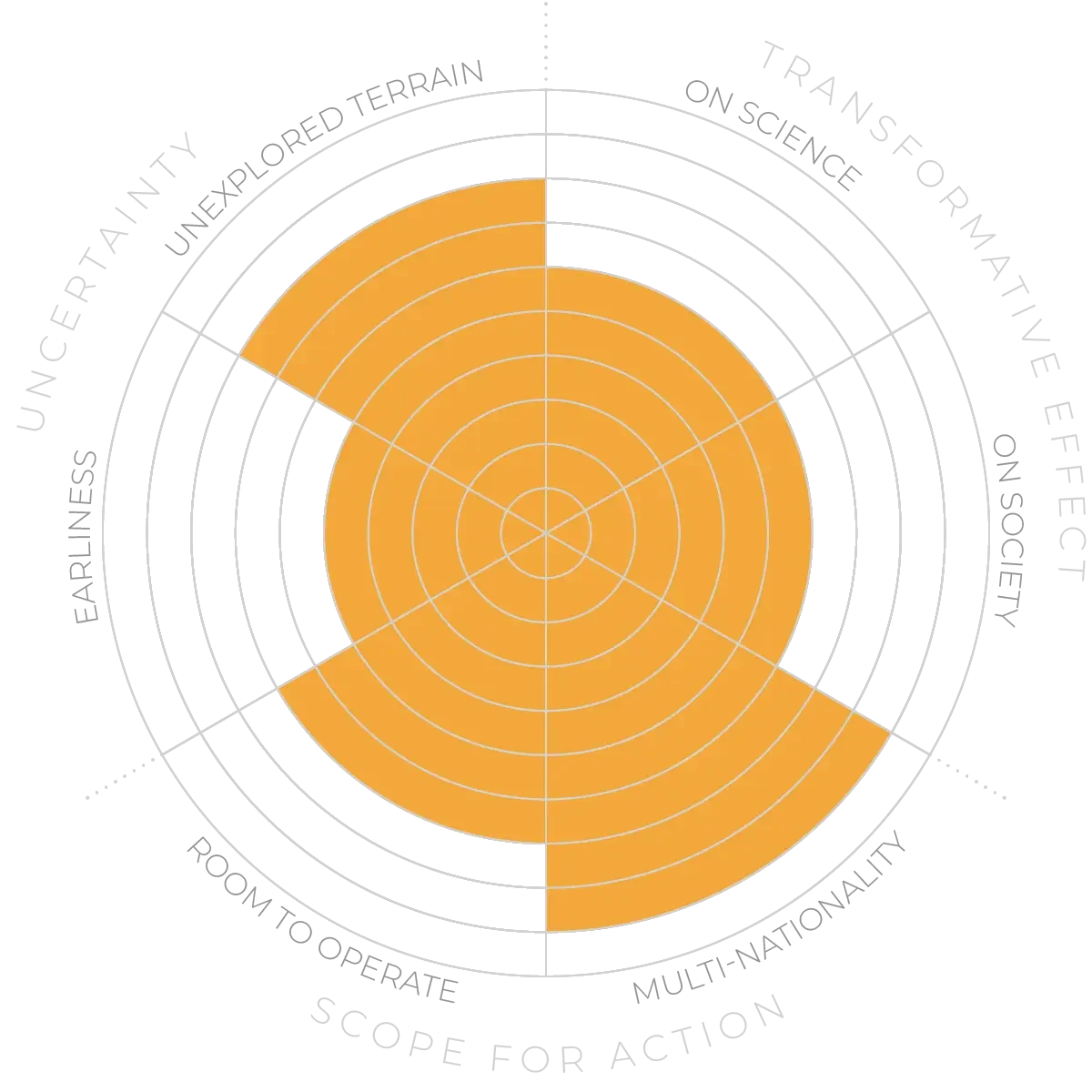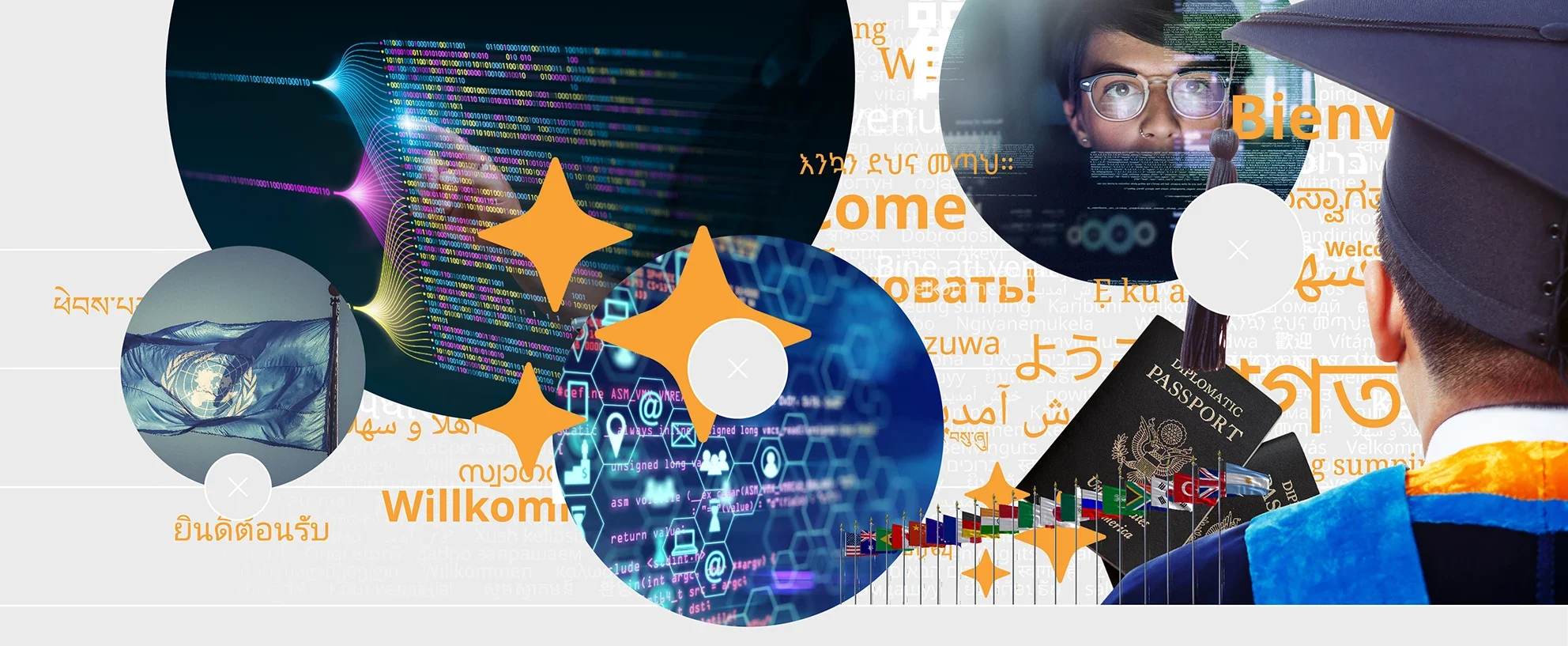Future Horizons:
10-yearhorizon
Computational techniques uncover new insights into multilateralism
25-yearhorizon
Computational diplomacy reshapes international relations as a science
The cost of processing this data means it has not been well used to inform the process of diplomacy, to amplify cooperation and to improve outcomes. Nevertheless, organisations like the UN, the World Bank and other policy-makers are working hard to integrate quantitative methods into their organisations, which will accelerate the practice of computational diplomacy and its use of big data, machine learning and computational thinking.
There is much low-hanging fruit here. The networks of actors on the international stage and their institutional relationships are already beginning to be mapped,1,2,3 giving a deeper understanding of the connections that can influence negotiations. Also being mined for insight are resolutions adopted by various international organisations. Relevant examples include the United Nations General Assembly and Security Council resolutions histories,4 sponsorship data5 and debate themes, as well as the resolutions adopted by the World Health Organization.6,7 This work is beginning to deliver quantitative results, a crucial step for reproducibility.8,9,10
Much more can be done. Combining a data-driven approach with computational modelling can facilitate a more fundamental understanding of how multilateral governance systems work and how they can be improved, for example.11 The growing use of AI is likely to have a significant impact here,12 but developing the multidisciplinary expertise that can manage and exploit diplomatic processes is a significant challenge.
Computational diplomacy - Anticipation Scores



